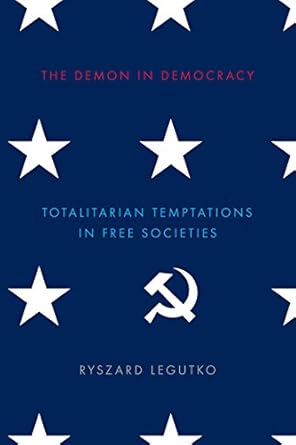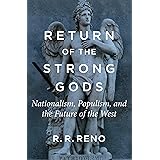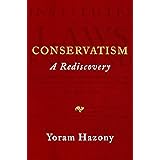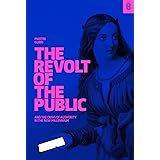
Enjoy fast, free delivery, exclusive deals, and award-winning movies & TV shows with Prime
Try Prime and start saving today with fast, free delivery
Amazon Prime includes:
Fast, FREE Delivery is available to Prime members. To join, select "Try Amazon Prime and start saving today with Fast, FREE Delivery" below the Add to Cart button.
Amazon Prime members enjoy:- Cardmembers earn 5% Back at Amazon.com with a Prime Credit Card.
- Unlimited Free Two-Day Delivery
- Streaming of thousands of movies and TV shows with limited ads on Prime Video.
- A Kindle book to borrow for free each month - with no due dates
- Listen to over 2 million songs and hundreds of playlists
- Unlimited photo storage with anywhere access
Important: Your credit card will NOT be charged when you start your free trial or if you cancel during the trial period. If you're happy with Amazon Prime, do nothing. At the end of the free trial, your membership will automatically upgrade to a monthly membership.
Buy new:
$36.46$36.46
Buy used:
$32.95





Download the free Kindle app and start reading Kindle books instantly on your smartphone, tablet, or computer - no Kindle device required.
Read instantly on your browser with Kindle for Web.
Using your mobile phone camera - scan the code below and download the Kindle app.

 Audible sample Sample
Audible sample Sample



Follow the author
OK
The Demon in Democracy: Totalitarian Temptations in Free Societies Hardcover – April 19, 2016

Explore your book, then jump right back to where you left off with Page Flip.
View high quality images that let you zoom in to take a closer look.
Enjoy features only possible in digital – start reading right away, carry your library with you, adjust the font, create shareable notes and highlights, and more.
Discover additional details about the events, people, and places in your book, with Wikipedia integration.
Purchase options and add-ons
-
Print length200 pages
-
LanguageEnglish
-
PublisherEncounter Books
-
Publication dateApril 19, 2016
-
Dimensions6.5 x 1 x 9.5 inches
-
ISBN-101594038635
-
ISBN-13978-1594038631
The Amazon Book Review
Book recommendations, author interviews, editors' picks, and more. Read it now.
Frequently bought together

Similar items that may ship from close to you
Editorial Reviews
About the Author
Product details
- Publisher : Encounter Books (April 19, 2016)
- Language : English
- Hardcover : 200 pages
- ISBN-10 : 1594038635
- ISBN-13 : 978-1594038631
- Item Weight : 15 ounces
- Dimensions : 6.5 x 1 x 9.5 inches
- Best Sellers Rank: #130,418 in Books (See Top 100 in Books)
- #108 in European Politics Books
- #327 in Political Commentary & Opinion
- #349 in History & Theory of Politics
- Customer Reviews:
About the author

Discover more of the author’s books, see similar authors, read author blogs and more
Customer reviews
Customer Reviews, including Product Star Ratings help customers to learn more about the product and decide whether it is the right product for them.
To calculate the overall star rating and percentage breakdown by star, we don’t use a simple average. Instead, our system considers things like how recent a review is and if the reviewer bought the item on Amazon. It also analyzed reviews to verify trustworthiness.
Learn more how customers reviews work on AmazonReviews with images
-
Top reviews
Top reviews from the United States
There was a problem filtering reviews right now. Please try again later.
Why is Dostoyevsky right? Why liberals so rigid?
''The language of modernization, by referring, if only associatively, to technology compels us to see the world as an object of engineering and innovative activity, almost like a machine to be improved by new devices and perfected by new inventions.''
Give (force) human and human society an update. Now!
''The word “technology” comes, of course, from the Greek technê, which, as the ancients said, had such a powerful potential that it could make men equal to gods. It was Prometheus who made a gift of technê to the human race, the gift that enabled people to survive and then to improve their living conditions and make life better.''
Humans 'equal to the gods'!
''This wonderful gift had, however, another side to it: the ancients warned that technê could, precisely because of its miraculous, almost divine creative potential, draw man into the sin of hubris. Modernity made Prometheus a hero, and his gift was thought to be the best thing that ever happened to mankind because it was believed to be a vehicle of infinite progress carrying the human genius to unimaginable achievements. The meaning of modernization in today’s world goes far beyond technology in standard terms, but the faith in it draws its strength largely from the unprecedented technological successes that man has achieved so far and with which it can yet surprise the world in the future.'' (5)
This 'faith' is now worldwide.
''The need for building a liberal-democratic society thus implies the withdrawal of the guarantee of freedom for those whose actions and interests are said to be hostile to what the liberal democrats conceive as the cause of freedom.'' (19)
What? Withdraw freedom in the cause of freedom? How is this explained? -
''Why waste time, they think, arguing with someone whom the march of history condemned to nothingness and oblivion? Why should anyone seriously enter into a debate with the opponent who represents what is historically indefensible and what will sooner or later perish? People who are not liberal democrats are to be condemned, laughed at, and repelled, not debated.''
Evidence, reasoning, logic are from the old world. Therefore - bunk!
''Debating with them is like debating with alchemists or geocentrists. Again, an analogy with communism immediately comes to one’s mind. The opponents of communism—e.g., those who believed free-market to be superior to planned economy—were at best enemies to be crushed, or laughingstocks to be humiliated: how else could any reasonable soul react to such anachronistic dangerous ravings of a deluded mind?''
Family authority? Remove it!
''After all, in a liberal democracy everyone knows—and only a fool or a fanatic can deny—that sooner or later a family will have to liberalize or democratize, which means that the parental authority has to crumble, the children will quickly liberate themselves from the parental tutelage, and family relationships will increasingly become more negotiatory and less authoritarian.''
These observations seem so accurate, so current, his vision just jumps off the page!
''These are the inevitable consequences of the civilizational and political development, giving people more and more opportunities for independence; moreover, these processes are essentially beneficial because they enhance equality and freedom in the world. Thus there is no legitimate reason to defend the traditional family—the very name evokes the smell of mothballs—and whoever does it is self-condemned to a losing position and in addition perpetrates harm by delaying the process of change.'' (21)
Who is this guy? -
''Professor Legutko is both a prominent Polish and European statesman and a distinguished philosopher who, in addition to more conventional credentials, was once the editor of Solidarity’s underground philosophy journal. . . . So he is ideally equipped to analyze the mystery of this ideological edge.''
Forward
Introduction
I History
II Utopia
III Politics
IV Ideology
V Religion
Conclusion
This an erudite, scholarly work. Refers to Marx 57 times, Tocqueville 12, Rousseau 10, Talmon 2, Hegel 4, Kant 8. For example. . .
''The triumph of liberalism and democracy was supposed to be emancipatory also in the sense that man was to become free from excessive demands imposed on him by unrealistic metaphysics invented by an aristocratic culture in antiquity and the Middle Ages. In other words, an important part of the message of modernity was to legitimize a lowering of human aspirations.'' (29)
'Low human aspirations'? Not improving- but degrading?
''There were, as I have said, exceptions to this view—few, but worth noting. Among the eighteenth-century authors, Kant, who defended liberalism, set up high standards for humanity; in the nineteenth century, John Stuart Mill and T. H. Green had similar intentions. The last two aptly perceived the danger of mediocrity that the democratic rule was inconspicuously imposing on modern societies. They both believed—differences notwithstanding—that some form of liberalism, or rather, a philosophy of liberty, was a possible remedy to the creeping disease of mediocrity. Mill remained under the partial, albeit indirect influence of German Romanticism, and thus attributed a particular role to great, creative individuals whose exceptionality or even eccentricity could—in a free environment—pull men out of a democratic slumber.'' (29)
This, clearly, did not happen.
''But these ideas did not find followers, and liberal-democratic thought and practice increasingly fell into the logic of minimalism. Lowering the requirements is a process that has no end. Once people become used to disqualifying certain standards as too high, impractical, or unnecessary, it is only a matter of time before natural inertia takes its course and even the new lowered standards are deemed unacceptable.'' (29)
Race to the bottom!
''One can look at the history of liberal democracy as a gradual sliding down from the high to the low, from the refined to the coarse. Quite often a step down has been welcomed as refreshing, natural, and healthy, and indeed it sometimes was. But whatever the merits of this process of simplification, it too often brought vulgarity to language, behavior, education, and moral rules. The growing vulgarity of form was particularly striking, especially in the last decades, moving away from sophistication and decorum.'' (29)
Who can deny it?
(Added 11/28/21 after listening twice to audible version. Great!)
“Modernity, a completely new era that was born when its makers decided to reject everything that preceded it and to start anew. The creators of modernity—Machiavelli, Hobbes, and Bacon—saw themselves as pioneers of the new who boldly turned their backs on the past.’’
This explanation of the source of modernity seems valid; not Darwin, not Einstein, not Marx.
“When we look at communism and liberal democracy from this point of view, we can see that they are both fueled by the idea of modernization. In both systems a cult of technology translates itself into acceptance of social engineering as a proper approach to reforming society, changing human behavior, and solving existing social problems.’’
Technology isn’t science. Cell phones are tools. Science is belief.
“Having cast away the obligations and commitments that come from the past, the communist and the liberal democrat quickly lose their memory of it or, alternatively, their respect for it. Both want the past eradicated altogether or at least made powerless as an object of relativizing or derision. Communism, as a system that started history anew, had to be, in essence and in practice, against memory. Those who were fighting the regime were also fighting for memory against forgetting, knowing very well that the loss of memory strengthened the communist system by making people defenseless and malleable.’’
Interesting that the Bible written as historical record that teaches lessons and illustrates wisdom.
“There are no better illustrations of how politically imposed amnesia helps in the molding of the new man than the twentieth-century anti-utopias 1984 and Brave New World. The lessons of Orwell and Huxley were, unfortunately, quickly forgotten. In my country at the very moment when communism fell and the liberal-democratic order was emerging, memory again became one of the main enemies. The apostles of the new order lost no time in denouncing it as a harmful burden hampering striving for modernity. In this anti-memory crusade, as in several other crusades, they have managed to be quite successful, more so than their communist predecessors.’’
Author repeatedly asserts that democracy more successful than communism in destroying previous culture.
“In a famous essay, Immanuel Kant wrote about the advent of the era of “perpetual peace” among the republics. What is interesting, however, is that, according to Kant, this blessed era could and actually should be preceded by a phase of enlightened absolutism.’’
Still coming . . .
“The need for building a liberal-democratic society thus implies the withdrawal of the guarantee of freedom for those whose actions and interests are said to be hostile to what the liberal democrats conceive as the cause of freedom.’’
Freedom withdrawn. No kidding.
“As once when all major designations had to be preceded by the adjective “socialist” or “communist,” so now everything should be liberal, democratic, or liberal-democratic, and this labeling almost automatically gives a recipient a status of credibility and respectability. Conversely, a refusal to use such a designation or, even worse, a ostentatious rejection of it, condemns one to moral degradation, merciless criticism, and, ultimately, historical annihilation.’’
Cancel culture is here.
“Not only should the state and the economy be liberal, democratic, or liberal-democratic, but the entire society as well, including ethics and mores, family, churches, schools, universities, community organizations, culture, and even human sentiments and aspirations. The people, structures, thoughts that exist outside the liberal-democratic pattern are deemed outdated, backward-looking, useless, but at the same time extremely dangerous as preserving the remnants of old authoritarianisms. Some may still be tolerated for some time, but as anyone with a minimum of intelligence is believed to know, sooner or later they will end up in the dustbin of history. Their continued existence will most likely threaten the liberal-democratic progress and therefore they should be treated with the harshness they deserve.’’
Harshness they deserve. Indeed.
“After all, in a liberal democracy everyone knows—and only a fool or a fanatic can deny—that sooner or later a family will have to liberalize or democratize, which means that the parental authority has to crumble, the children will quickly liberate themselves from the parental tutelage, and family relationships will increasingly become more negotiatory and less authoritarian.’’
Right! Who can argue with something so obvious?
“Dignity was something to be earned, deserved, and confirmed by acting in accordance with the higher standards imposed by a community or religion—for instance, by empowering a certain person with higher responsibilities or by claiming that man was created in God’s image. Dignity was an attribute that ennobled those who acquired it. As noblesse oblige, dignity was an obligation to seek some form of self-improvement, however vaguely understood, but certainly closer to the Socratic way and further away from its opposite. The attribute was not bestowed forever: one could always lose it when acting in an undignified way. At some point, the concept of dignity was given a different meaning, contrary to the original. This happened mainly through the intercession of the language of human rights, especially after the 1948 Universal Declaration. The idea of human beings having inalienable rights is counterintuitive and extremely difficult to justify. It may make some philosophical sense if derived from a strong theory of human nature such as one finds in classical metaphysics. However, when we accept a weak theory, attributing to human beings only elementary qualities, and deliberately disregarding strong metaphysical assumptions, then the idea of rights loses its plausibility.’’
If humans are just random chemicals, smarter animals why have rights?
“Solidarity stood up in defense of human dignity (in its original and not the corrupted sense), access to culture, respect for truth in science and for nobility in art, and a proper role given to Christian heritage and Christian religion. It seemed that suddenly those great ideas at the root of Western civilization—which this civilization had slowly begun to forget—were again brought to life and ignited like a fire in the minds of the members of a trade union. This was probably one of the reasons why Solidarity met with such widespread, though short-lived admiration. Suddenly, in this godforsaken place there emerged a movement that not only challenged the Evil Empire, but reminded everyone of the spiritual dimension of human existence, of truth, God, heroism, nobility of culture, the importance of historical and religious heritage, and other high moral principles.’’
This did inspire millions. Unfortunately author explains that this movement didn’t last. The democratic replacement of communism successfully removed these beliefs.
(See ''Liberal Fascism: The Secret History of the American Left, From Mussolini to the Politics of Meaning'', by Jonah Goldberg)
The author lived under the soviet regime in Poland, and then was able to observe and participate in the post-communist period in Poland, and subsequently moved to the West. He summarizes his comparisons under 5 section headings: History, Utopia, Politics, Ideology, Religion. I’ve summarized each section below, largely using Legutko’s language.
Legutko suggests that the consequence of the similarity is that the modern liberal-democratic world does not deviate much from the world that communist man dreamed about. Liberal democracy will be the fulfillment of what communism planned but failed to accomplish: man’s integration with the state and the state with man. Under communism, “one was expected to become indistinguishable, in words, thoughts and deeds, from millions of fellow citizens”. Liberal democracy is, similarly, an aggressive unifying system, imposing uniformity of views, behavior, and language”.
Sadly, Legutko blames the victim: the citizen. He asserts that communism and liberal democracy stem from the same root: the inclination of modern man to shirk the potential to aim at excellence through individual striving and creativity, in favor of collective goals such as equality, peace and prosperity for all. In this way, modern man is relieved from the burden of great aspirations, and can safely become a mediocre assimilation in the common system.
They may think that way in Europe, but in the US we believe in individualism, where each one can strive to find his or her highest and best use, and use their unique knowledge and resources entrepreneurially to serve fellow citizens in the fashion they desire, improving all lives and spreading prosperity and wealth. It is true that the liberal democratic state aims to suppress the spirit of individuality in favor of collectivism, but the individuals will win out in America. It takes only 10-20% of the population to excel in order to lead the others.
Here are the author’s five categories.
History: Both regimes never tire of repeating that societies are improving in a linear fashion, the most convincing evidence of the improvement being the rise of communism and liberal democracy. The communist view was that communism was bound to prevail everywhere as a result of the inevitable historical forces discovered by Karl Marx. Liberal democracy does not have an exact equivalent of Karl Marx, but it does have the Whig concept of history, in which freedom struggles against tyranny, and increasingly gains the upper hand until tyranny is vanquished. The era of conflict, wars and violence would come to an end, and be replaced by an era of co-operation, progress and prosperity. It is just around the corner. The argument, and the images of the historical process, are the same. The need for building a liberal-democratic society implies the withdrawal of the guarantee of freedom for those whose actions and interests are said to be hostile to it. Which is just what the communists said: everything that exists in society must be imbued with the spirit of the system. Ethics, mores, family, churches, schools, universities, community organizations, culture, and even human sentiments and aspirations, all must conform.
Utopia: Communism and liberal democracy are believed to be the ultimate stages of the history of political transformations. Both systems identify their structures with human ideals. This marriage between the system and the ideal gave birth to peculiar type of political moralizing. Liberal democracy boasts of bestowing freedom on individuals and emancipation on groups, taking it for granted that freedom and emancipation are possible only in a liberal democracy, or rather that freedom and emancipation are liberal democracy. The language of morality and politics become combined, just as happened in communism. But the assertions about the unity of institutions and ideals are completely unfounded. Communism did not represent class justice and liberal democracy is not the sole representative of freedom, nor particularly consistent in practicing freedom. Utopia is a bold project to solve all the problems of collective life. Democracy aims to create a state of mind in which citizens emphasize the absolute superiority of the system, despite the vulgarity of mass society, the prevalence of mediocrity, the weakening of social customs and traditions, the over-production of legislation, and the omnipresent spirit of partisanship that permeates every aspect of life.
Politics: Both communism and liberal democracy promised a reduction in the role of politics, and yet resulted in politicization of everything. Marx and Engels imagined how in the world to come man, unburdened by politics, would hunt in the morning, go fishing at noon and engage in literary criticism after dinner. But communism is a philosophy of power over life, society, knowledge, morality and everything else; more politics means more instruments to make use of this power, and so the presence of politics increases. Liberalism is also a doctrine of power. Its goal is to create a general framework in which all citizens operate. Liberal politicians therefore position themselves above all others and always demand more power, in order to make more rules to extend the framework. Partisanship then emerges, and eventually, every fact, thought, idea, book and person is assessed for any potential contradiction of liberal assumptions. Liberalism becomes increasingly intolerant and doctrinaire, and more and more subjects become politicized: women (feminism), sex, gender, race, art, literature, education, family, religion, traditions, ideas, entertainment, children’s toys. Political correctness requires that all citizens participate in the collective enterprise by using the right words, holding the right ideas, and adhering to the right political principles. Thought crimes are not tolerated.
Ideology: Both communism and liberal democracy have a strong tendency to ideology. Marx and Engels asserted that some see more clearly than others because their minds have a better grasp of the world to come. These people speak in the name of the future and purvey the revolutionary spirit. This anticipation of the new era is what Marx and Engels called ideology. Ideology enables discrediting one’s opponent without entering into a substantive argument. There is no sense in analyzing the opponent’s views on their merits; much better to condemn them as representing bourgeois interests. Ideology is the principle of partisanship. It provides its adherents with an incomparable sense of moral superiority and intellectual self-righteousness.
Liberal democracy holds the same feeling that a new utopia is just around the corner, and ideological liberals have colonized a vast part of public life and private thought. They have a similar sense of moral superiority and self-righteousness as their communist predecessors. They have their own version of the communist theory that building a new society must coincide with destroying their enemies. As opposed to class struggle, the conceptual engine of communism, they use the ideological triad of “class, race, gender”. There is a compulsion to manifest pious loyalty to the doctrine. Every politician, artist, writer, celebrity or teacher must prove their liberal democratic loyalty to the creed. Ideology categorizes the entirety of individual and collective existence into correct and incorrect.
Religion: Marx hated religion, and contended that it would be abolished. In liberal democracy, the hostility is focused on Christianity. As liberal democracy advances further towards rigid dogmatization, it shows less clemency to anyone outside the accepted boundaries, including Christians. Christianity is not just a religion, but a vital element of Western identity, and the last great force that offers an alternative to the sterility of liberal democracy. Will it be degraded to the position of a contemptible enemy of liberal democracy?
The two systems, communism and liberal democracy, were hailed as the greatest hopes of mankind. Their story is about the aspirations and dreams of modern man. The two systems represent what Thomas Sowell called the unconstrained vision: that man is perfectible and can build systems of control over life. If he pursues collective goals – equality, peace, prosperity, etc – he is relieved of the individual necessity to aspire to greater ideals. He becomes mediocre, a part of the regime, divested of difficult obligations.
Top reviews from other countries
This is a MUST read.
- long queries for the basic items like washing pulver, bar of chocolate or coffee
- odd or even number of car plates for qualification for the petrol at nearby gas station
- constant conjuration to the leader of communist party when in primary school
- and indirectly whole nation decimated from the purge of so called revolution after second world world,
would deeply reconcider their opinion of romanticism of communist experiments.
Becaus the author knows communism from his native Poland, he can compare that to democratic liberalism that is so pervasive in EU this days. Communism was brutal yes, but it was also very transparent and because of its nature very easy to refute. NOBODY in my country honestly believed in long term survival of such a sistem - the game was how to endure this and for beneficiaries of the system to grab as much as possible for themselves or descendants in the hope that it will last long enough. Mr. Legutko writes about "coercion to freedom" that is very perfidious and insidious and so much more dangerous than communist experiments. In such a climate of Europe people are lulled in comfort and nonchalance and visible sings of this millieu is this:
- empty churces with diminishing number of christian priests serving increasingly older and older citizens
- political corectness in media that borders on dizziness
- so called hate speach in service of elites who decide what is permissible
- agressiveness of defined groups in their search of bigger and bigger consessions from the state on expenses for all taxpayers
- lowering od educational standards in schools and public discourse
- masses of asylum seekers and refugees where it is not possible to discern who is terrorist and who is in real need
- rampant consumerism that makes life provisional, shallow and meaningless and often ends in suicide or mental illness.
All this and more is tackled directly or indirectly by the author. I hope that some of his pessimistic prognosis will not materialize, but his analysis and knowledge is spot on. One of the best books in a decade and serious invitation for an European citizen to question his values and identity. You have been warned.
A powerful idea at the heart of Legutko’s book is that liberalism is actively destroying the pluralism on which much of its philosophical legitimation rests. He echoes what Patrick Deneen has recently written in ‘Why Liberalism Failed’, a central contention of which is that liberalism actively undermines its own cultural foundations. Both writers look back to Tocqueville who early on saw the dangers of conformity, simplification and sentiment which liberal democracy would give rise to.
It is a commonplace today that communist societies were totalitarian and monochrome, and that obedience, conformity and thought-policing were intrinsic to them. Legutko’s argument is that liberal democracies are increasingly not so different. Whereas communism openly avowed the need to destroy all pre-existing culture and recreate ‘citizens’ in a new model, devoid of arcane inheritances from family, church or any other pre-existing ‘structure’, liberalism feigns a conversational plurality in which it promises to pay respect to different identities, values and inheritances, with an offer to minimally arbitrate or facilitate between them. But liberalism has increasingly come to see culture and values as a key battleground and is no longer content to mediate a pluralistic demos, but rather seeks to refashion it.
The demos has always been problematic for liberalism, and indeed the electoral franchise was restricted for so long precisely because of uncertainty over where genuine ‘democracy’ might lead. To their great relief, the great ‘democratising’ conservative leaders of the late 19th. century, like Bismarck and Salisbury, saw that extending the franchise did not inevitably lead to leftism and a wholesale attack on privilege, but that there was a significant conservative ballast even amongst those apparently least privileged. In the social and political turmoils in the aftermath of the First World War and the Russian Revolution this conservative ballast not only resisted socialism, it also leant support to Fascism, to the stupefied chagrin of the Frankfurt School and other Marxists. The problem of ‘deconstructing’ this conservatism inherent in the demos became the central project of the intellectual left throughout the 20th century.
The latent conservatism in any demos could be said to lie in two principal areas: defence of privilege and resistance to change. As the current intellectual fashion of ‘intersectionality’ highlights, privilege and underprivilege exist across different dimensions, and in the right circumstances the coalition of ‘privileged’ can be very large indeed, especially when the whole social structure is in play. Indeed, it was precisely the realisation of this that made communists so vociferous in their counter-revolutionary brutality: the more evident their radicalism became, the bigger became the conservative coalition that tried to resist them.
While resistance to change is partly also motivated by defence of privilege, it is more importantly generated by scepticism that is properly suspicious of the political process, and particularly all political ‘ideology’. A fundamental insight that has recently been rehearsed by, for instance, Nassim Taleb’s ‘Anti-Fragile’ and Jordan Peterson’s ‘12 Rules for Life’, is that it is a difficult and primarily experiential task for a human being to gain understanding in the world. There is a lot of opacity, which trial-and-error, with real exposure to consequences, is much better at helping us to understand than ‘reading’ or thinking. The place one takes in the world depends on a matrix of one’s abilities, access, luck, and above all on the moves and trade-offs one has made in one’s life. Resistance to change is partly resistance to having all of those moves thrown into question by a radical re-writing of the game. But more than anything, purposive engagement with life teaches humility about all simplifications, all rationalistic ‘impatience’ that wants to get quickly from an A to a B. Any move in the game has repercussions, often impossible to foresee. It also gives rise to a grounded, nuanced perspective, which when socially aggregated sums to genuine distributed knowledge that, in Hayekian terms, is much greater than the sum of its individual parts. A demos that is properly experienced and invested in life, and appreciative of the subtleties and difficulties in each and every achievement, is the ideal demos in which liberal plurality is theoretically founded.
Contrary to this experientially embedded plurality, Legutko argues that the ideology that rules liberal democracy no less than communism is simplistic, leftist and utopian: a belief that society really can be made much more just, that intellectuals and politicians will lead the way, and that the public needs to be refashioned and led. Whether an intellectual-led utopian political programme could be brought to fruition, or indeed, if it has any meaning at all, is a profound question that has haunted the world since the middle of the 19th century. The list of depressing communist experiments has slapped down the naive but insistent optimism that characterised leftists in the first half of the 20th century, but has not ended the question by any means. Legutko’s is a sharp counter to a Fukuyama viewpoint that saw liberalism and communism as alternative systems, one of which proved superior to the other, hence ‘ending’ history: rather, he argues, liberalism contains the same central problem as communism, and we are far from being at the point where liberalism is fully played out.
Legutko’s characterisation of the ideology of both liberalism and communism as essentially simplistic and simplifying echoes a central idea of René Girard, who saw communism as nothing more than a deviation of Christianity: all that is going on in leftist politics is the progressive ‘uncovering of the victimological principle.’ Girard saw Western culture, because of the centrality of Christianity in its evolution, as doomed to endless self-criticism in which each generation would look back aghast at the ‘injustices’ of the generations that preceded them. Only the utopian eschatology baked into the Enlightenment saves the West from dizzyingly falling sick with its persistent relativism, as it is able to convince itself that all this criticism is an advance of ‘progress’. The centrality of this eschatology in the cultural self-perception does much to explain the need to ridicule and delegitimize history.
Suspicion about what this dominant leftist ideology really amounts to is harboured by many people and is a powerful source of conservatism. But whether a leftist ideology of ‘restituting injustice for all victims’ might be chaotic or meaningless - that injustice might spring from difference before it springs from power - does not constrain it from having substantial mimetic force.
Legutko’s pessimism is precisely that this mimetic idea, of ‘eliminate all injustice’ not only has taken hold of intellectual and political elites in liberal democracies, just as it did under communism, but that it is burrowing into the demos to undermine and destroy real culture where there exists actual wisdom and practical knowledge. The Christian West has always been perplexed by the deeply existential empathy of the core message of the gospel and the impossibility of fashioning a practical politics out of it, and theologians wrestled for centuries with the problem. The practical religion of the Church, and similarly the what one might call neo-Christianity of Jordan Peterson, attempts a fusion of virtues like individuality, responsibility, restraint, love, duty, and above all an embracing of difficulty and an acknowledgement of incommensurability of values, which tries to give due weight to the challenges of individual life, prosperity and social order, as well as charitable empathy. Extending beyond theology, Western culture also discovered the ‘politico-philosophical goods’ of, among others, tolerance for difference, respect for individual autonomy and decentralisation of property, power and agency. And as Legutko points out, these goods often have their roots in conservative and classical rather than in modernist or leftist thought.
The peculiar danger that liberal democracies are experiencing is that education in these virtues, and appreciation of these philosophical goods, is being flattened, eroded on the one hand by a docility-inducing culture of consumerism and gratification, and on the other by the political assault on history itself, and the characterising of all historical culture as oppressive and blindly unperceptive. Liberalism has entered this remarkable period wherein the educated public belongs almost exclusively to a professional precariat class, whose identities of community, religion, social class, and increasingly, nationality and gender, are being persistently flattened, to leave, as Patrick Deneen has recently written, political affiliation as the new and only signifier. Social media and political accelerationism have turned this once private thing into the litmus test of social acceptability. Evidencing the correct platitudes of political affiliation for social and career favour has displaced the ‘responsible activity’ of how one comported oneself in the world - one’s personal ethics of courage, fidelity, honesty, self-sufficiency and practical altruism - which used to be the currency of social virtue and which has become ‘privatised’ and, as Deneen says, off-limits to opinion as long as merely law-abiding.
Accelerated liberalism which is inebriated with the mimetic ecstasy of ‘persecuting the persecutors’ and uncovering ever more victims is not, any more than communism was, leading to any kind of utopia, however gratifying the victory over each latest injustice. The political order, and the mythical ‘social contract’ that underlies it, is not a rational, transparent or inherently virtuous thing. One could subscribe to Girard, who saw that sacrificial injustice is intrinsic to the social order, or to, say, Jean Baudrillard, who saw that the social bond is not simply one of shared interests, identity and co-operation, but rather is multi-faceted and tactical, with as much competition and distance as alliance and closeness, “a pact which is the contrary of the social contract, a symbolic pact of allurement, complicity, derision.” Every move which ‘rescues’ a victim is a shift in the tactical alignment of the ‘pact of allurement’ which constitutes the social bond.
Accelerated liberalism operates by a sleight of hand that focuses only on the rescue of the victim and ignores the impact of the move elsewhere. Often a ‘victim’ is a collateral casualty in a cultural discourse, or tactical disposition, which has evolved to provide a solution or at least an equilibrium to a certain social phenomenon. For instance, ‘traditional sexual morality’ regulated a complex interaction of sexual feelings, family-formation and paternal authority, in which ‘freedom of sexual expression’ was a collateral casualty. In old cultures, there existed interstices wherein there could be derogations from the ideals of cultural morality, albeit always carrying the risk of scandal, but uniform obeisance was always seen to be ideal rather than credibly practical. While liberalism shows an ever more hysterical intolerance to the injustice of any one ‘collateral casualty’, by its simplifying monomania it externalises the collateral costs which emanate from the moves made to assuage its victimological obsessions. In an obvious contemporary example, liberal public policy debate seems incapable of acknowledging the fundamental exclusion and privilege on which all nation states are based, and instead plays a fantasy politics in which an indefinable number of refugees, asylum seekers and economic migrants can be ‘accommodated’, because drawing attention to the collateral effects is branded as scaremongering or ‘alt-right nationalism’.
But the social contract is a finely woven cultural object and dismissing as ‘illegitimate’ any objection to what liberals determine should be its reconfiguration, above all when the liberal ideology seems to contemplate no visible limit on the horizon, is to threaten to destabilize the deeply invested tactical alignments which it is based on. Populism is arising now through a growing, ever more widely held conviction, that liberal ideology, and the moves it is making within the culture to police speech and opinion, can only be countered by a brusque, even brutish, refusal to respect its pieties. As Deneen has written, elite liberals have converted meritocracy into a citadel of privilege for themselves, and yet actively embrace an ideological rhetoric that attacks every privilege but their own, an incoherence that invites sceptical derision rather than engagement on its own terms.
Islamic communities in the West paradoxically offer islands of resistance to the liberal mimetic onslaught, just as Legutko says rural Catholicism did in communist Poland. René Girard said fascinatingly of religious fundamentalists who, despite defending ideas which he deplores, that “their revolt looks more respectable to me than our somnolence. In an era when everyone boasts of being a marginal dissident even as they display a stupefying mimetic docility, the fundamentalists are authentic dissidents.” The immunity of followers of non-Christian religions from the victimological zealotry of the liberals is fascinating to observe, and shows the importance of properly maintained traditional practice as something that can resist mimetic cultural despoilation. But the tactical dispositions matter, and a liberal politics that refuses to consider the importance of what size, for instance, an Islamic minority should become, or what the consequences might be of how much or little integration with wider society it undertakes, willfully ignores something that the demos know matters very much.
Populism is arising because liberal elites are in thrall to a simplistic ideology of a utopian elimination of all injustice yet see themselves as technocratic philosopher kings, who take it upon themselves to silence troublesome parts of the discourse. Indeed, Legutko excoriates the European Union as being the technocratic project par excellence, with practical insulation from the demos its fundamental feature . John Gray has recently commented despairingly, and fearfully, how communist ideas have returned to respectability, something which should be inconceivable given the history of the 20th century. What is evident is that accelerated liberalism offers little protection against this. By its delegitimation of history, its attempted evisceration of the constellation of undertstandings that make up conservatism, and also from what Legutko calls its logic of minimalism - its opting for ease, convenience and gratification - it’s demos is easily swept up in mimetic contagion, which is fertile ground for a left populism of its own.

















